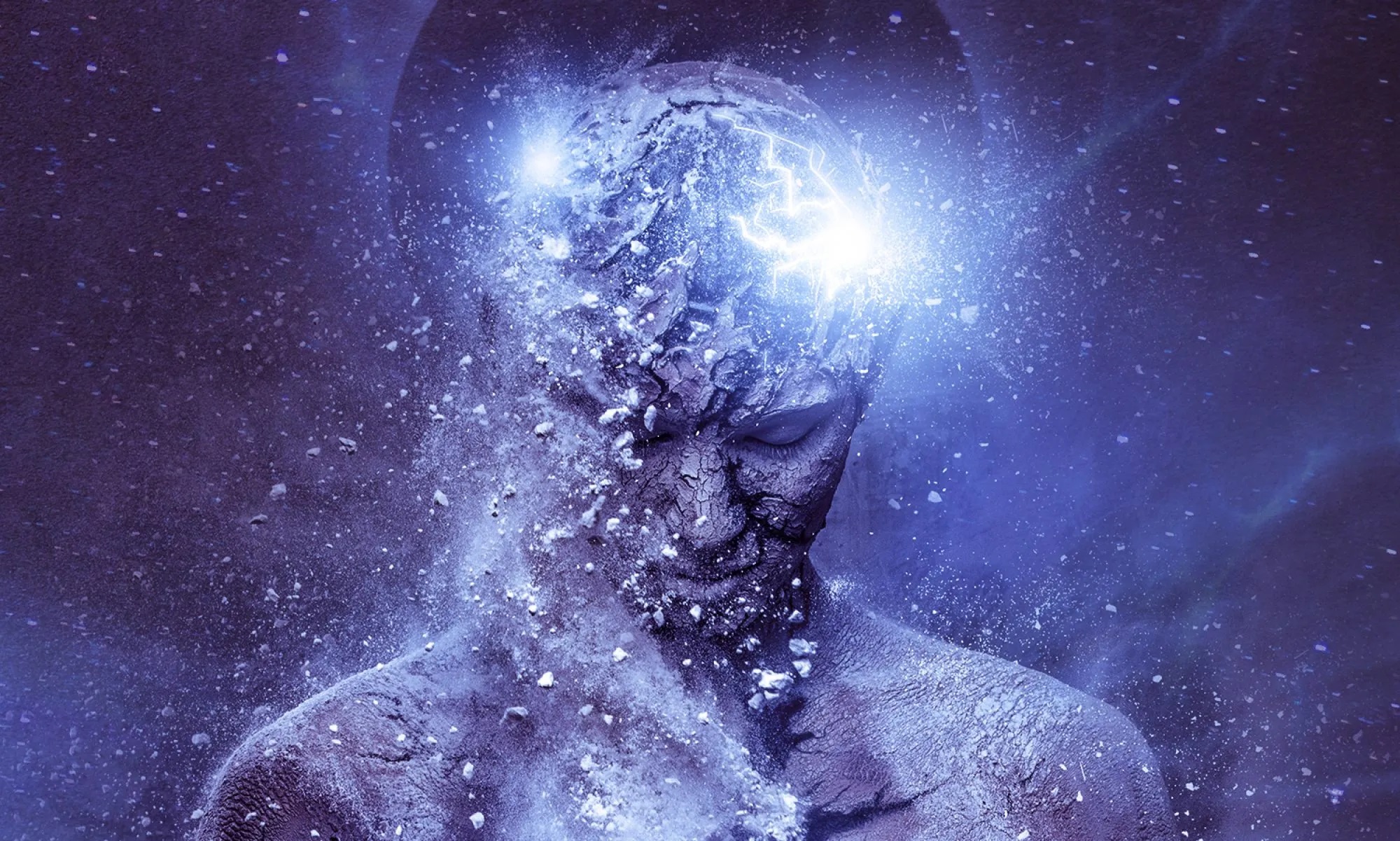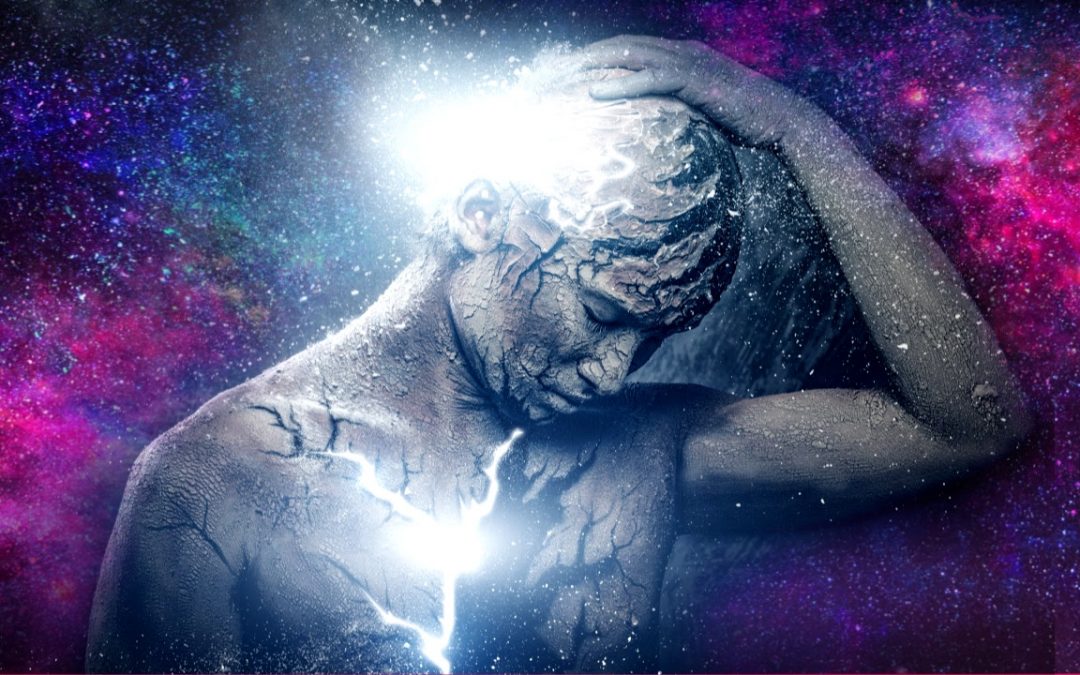Do Our Souls Care About The Body Forms They Occupy?
The question "do our souls care about the body forms they occupy?" is one that has intrigued philosophers, theologians, and spiritual seekers for centuries. At the heart of this inquiry lies a profound exploration of the relationship between the immaterial essence of our being—the soul—and the physical vessels through which we experience the world—the body. While answers to this question may vary depending on one's spiritual beliefs and philosophical perspectives, delving into this topic can provide insights into the nature of human existence and the interconnectedness of mind, body, and spirit.
Author:Evelyn AdamsReviewer:Calvin PenwellFeb 29, 20241.1K Shares21.5K Views

The question "do our souls care about the body forms they occupy?" has intrigued philosophers, theologians, and spiritual seekers for centuries. At the heart of this inquiry lies a profound exploration of the relationship between the immaterial essence of our being—the soul—and the physical vessels through which we experience the world—the body. While answers to this question may vary depending on one's spiritual beliefs and philosophical perspectives, delving into this topic can provide insights into the nature of human existence and the interconnectedness of mind, body, and spirit.
The Concept Of A Soul
Central to many religious and spiritual traditions is the belief in the existence of the soul—a non-physical, eternal essence that transcends the limitations of the material world. The soul is often regarded as the seat of consciousness, identity, and higher purpose, imbuing human life with meaning and significance beyond mere physical existence.
The Role Of The Body
In contrast to the soul's ethereal nature, the body serves as the vessel through which we experience the physical world. It is how we interact with our surroundings, express ourselves, and navigate the complexities of human existence. From birth to death, our bodies undergo continuous growth, change, and adaptation, shaping our experiences and perceptions of reality.
Dualism Vs. Holism
The question of whether the soul cares about the body forms it occupies often intersects with debates surrounding dualism and holism in philosophy and spirituality. Dualistic perspectives posit a fundamental separation between mind and body, suggesting that the soul exists independently of physical form and may transcend the limitations of the material world.
In contrast, holistic views emphasize the interconnectedness of mind, body, and spirit, suggesting that the well-being of the soul is intimately linked to the health and vitality of the body.
Spiritual Perspectives
From a spiritual standpoint, beliefs about the relationship between the soul and the body vary widely across different traditions.
Some spiritual teachings emphasize the importance of caring for the body as a sacred vessel housing the divine spark of the soul. Yoga, meditation, and mindful living promote holistic well-being, nurturing the connection between body, mind, and spirit.
Karmic And Reincarnation Beliefs
In traditions such as Hinduism, Buddhism, and certain New Age philosophies, the concept of karma and reincarnation further complicates the question of whether the soul cares about the body forms it occupies.
According to these beliefs, the soul undergoes a cycle of birth, death, and rebirth, inhabiting various physical forms as it evolves spiritually. The quality of one's actions (karma) in past lives may influence the circumstances and conditions of future incarnations, including the bodies they inhabit.
Personal Reflection And Contemplation
Ultimately, the question of whether our souls care about the body forms they occupy invites personal reflection, contemplation, and introspection. For some, the body may be viewed as a temporary vessel, subject to the impermanence of the physical world. For others, the body is considered an integral aspect of spiritual growth and evolution, deserving of care, respect, and reverence.
The Relationship Between The Soul And The Body Forms It Occupies
The relationship between the soul and the body forms it occupies has been a subject of philosophical, religious, and scientific inquiry for centuries. Across various philosophical and religious traditions, there are differing perspectives on whether the soul cares about the body forms it inhabits.
Philosophical And Religious Perspectives
In different philosophical and religious traditions, the concept of the soul varies significantly. For instance, according to the Dalai Lama, the Buddhist view of the soul is that it is an impermanent self that exists due to the body and mind. In contrast, Aristotle's philosophical perspective depicts the soul as the form of a living thing, based on matter and form.
The ancient Greeks, including the Pythagoreans and Orphics, embraced different views of the soul, with Pythagoreanism emphasizing dualism between body and soul, while Orphism incorporated metempsychosis, the idea of the soul undergoing a cycle of death and rebirth.
Arguments For And Against
Support for the idea that the soul cares about the body forms it occupies can be found in Plato's "Final Argument," where the soul is viewed as an immortal, indestructible entity that plays a fundamental role in giving life to the body. This suggests a profound unity between the soul and the body, with the soul being considered the 'form' of the body.
On the other hand, there are arguments against this notion. Socrates voiced opinions about the soul and body without accurate knowledge, casting doubt on the credibility of such views. Additionally, there is a critique that questions the literal 'aliveness' and independence of the soul from the body.
Scientific Perspectives
Scientific inquiry has revealed flaws and inconsistencies in the concept of the soul, leading to questions about its nature and relationship with the body. Neuroscience supports the physicalist viewpoint that mind and body are not distinct entities, and the correlation between the brain and the mind challenges the concept of an immaterial and unchanging soul operating independently of the physical brain.
Furthermore, the afterlife and the soul's existence lack concrete scientific evidence, suggesting that the nature of the soul is unfalsifiable and placed outside the realm of scientific inquiry.
Do Our Souls Care About The Body Forms They Occupy? - FAQs
What Exactly Is Meant By The Term "soul" In This Context?
The term "soul" typically refers to the immaterial, eternal essence of an individual that is believed to exist beyond the physical body. It is often associated with consciousness, identity, and spiritual significance.
Do All Religious And Spiritual Traditions Believe In The Concept Of The Soul?
No, beliefs about the soul's existence and nature vary across religious and spiritual traditions. While many traditions, such as Christianity, Islam, Hinduism, and Buddhism, incorporate the concept of the soul into their teachings, others may have different perspectives on the nature of human existence.
How Can Individuals Explore Their Own Beliefs About The Relationship Between The Soul And The Body?
Exploring one's beliefs about the soul-body relationship often involves personal reflection, contemplation, and introspection. It may also involve studying the teachings of various religious and spiritual traditions, engaging in philosophical inquiry, and seeking guidance from spiritual mentors or advisors.
Conclusion
So do our souls care about the body forms they occupy? While the question of whether our souls care about the body forms they occupy may remain unanswered, exploring this topic offers profound insights into the nature of human existence and the mysteries of consciousness.
Whether we conceive of the soul as separate from or intricately intertwined with the body, contemplating the relationship between mind, body, and spirit can deepen our understanding of ourselves and our place in the cosmos. Ultimately, it is through this exploration that we may come to appreciate the interconnectedness of all life and the inherent sacredness of our embodied existence.
Jump to
The Concept Of A Soul
The Role Of The Body
Dualism Vs. Holism
Spiritual Perspectives
Karmic And Reincarnation Beliefs
Personal Reflection And Contemplation
The Relationship Between The Soul And The Body Forms It Occupies
Philosophical And Religious Perspectives
Arguments For And Against
Scientific Perspectives
Do Our Souls Care About The Body Forms They Occupy? - FAQs
Conclusion

Evelyn Adams
Author
Evelyn Adams is a dedicated writer at Kansas Press, with a passion for exploring the mystical and uncovering hidden meanings.
Evelyn brings a wealth of knowledge and expertise to her insightful articles. Her work reflects a commitment to providing accurate information, thoughtful analyses, and engaging narratives that empower readers to delve into the mysteries of the universe.
Through her contributions, Evelyn aims to inspire curiosity, spark imagination, and foster a deeper understanding of the supernatural world.

Calvin Penwell
Reviewer
Since diving into numerology in 1997, my path has been marked by extraordinary encounters and insights. A pivotal moment was uncovering a forgotten numerological manuscript in a tucked-away Italian library, which deepened my connection to the ancient wisdom of numbers. Another transformative experience was a meditation retreat in Nepal's tranquil mountains, where I honed my intuition and the art of interpreting numerical vibrations.
These adventures have not only enriched my numerological practice but also my ability to guide others towards understanding their destiny and life's purpose. My approach is deeply personal, rooted in a blend of historical knowledge and intuitive insight, aimed at helping individuals find their alignment with the universe's abundant energies. My mission is simple: to share the power of numerology in illuminating paths to abundance and fulfillment.
Latest Articles
Popular Articles
